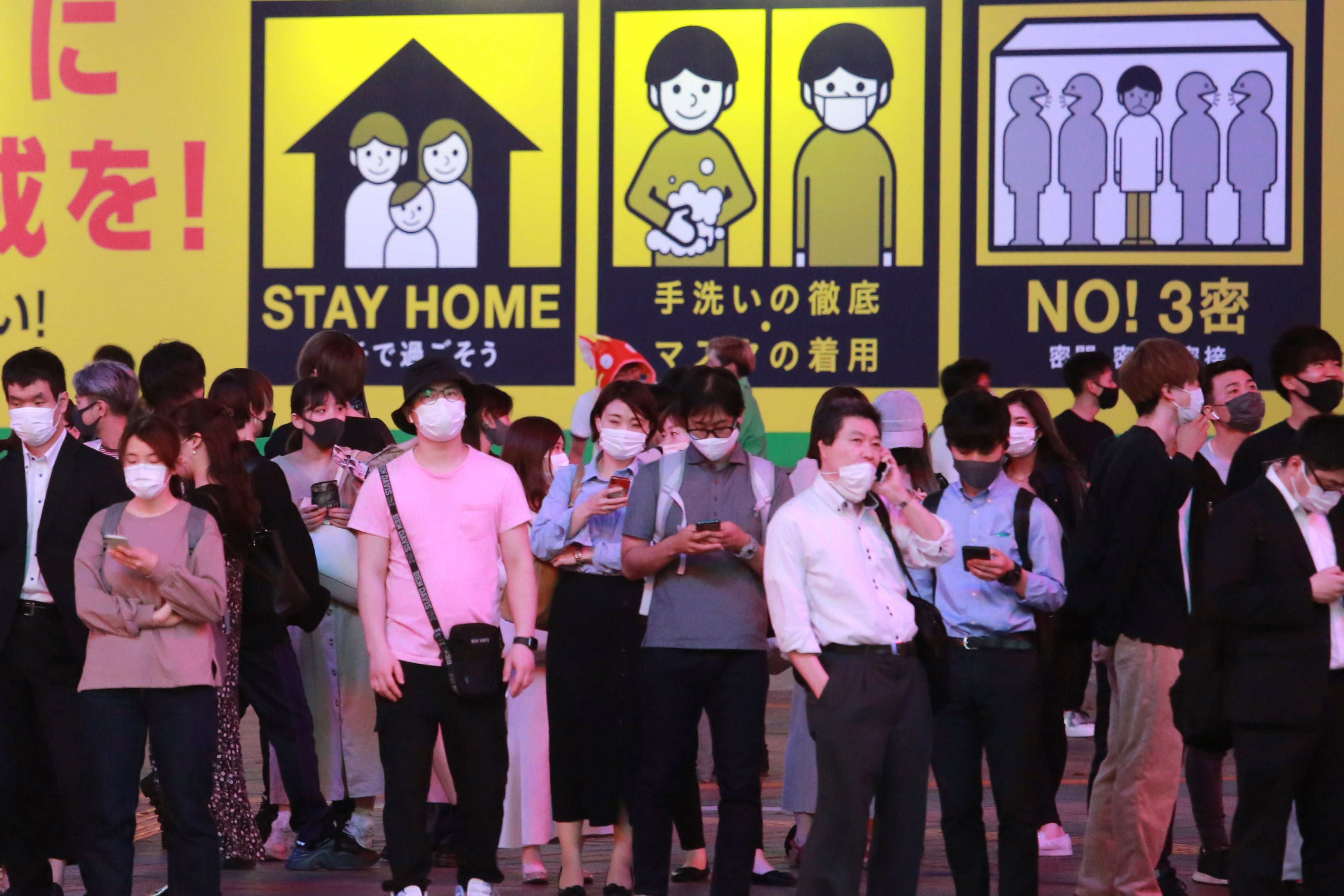AP PHOTOS: Tokyo nightlife bustles despite virus emergency

Your support helps us to tell the story
From reproductive rights to climate change to Big Tech, The Independent is on the ground when the story is developing. Whether it's investigating the financials of Elon Musk's pro-Trump PAC or producing our latest documentary, 'The A Word', which shines a light on the American women fighting for reproductive rights, we know how important it is to parse out the facts from the messaging.
At such a critical moment in US history, we need reporters on the ground. Your donation allows us to keep sending journalists to speak to both sides of the story.
The Independent is trusted by Americans across the entire political spectrum. And unlike many other quality news outlets, we choose not to lock Americans out of our reporting and analysis with paywalls. We believe quality journalism should be available to everyone, paid for by those who can afford it.
Your support makes all the difference.COVID-19 cases are still high and hospitals remain under strain despite a state of emergency as Japan on Thursday marks 50 days before the start of the Tokyo Olympics.
But the city's nightlife continues almost as usual as people in one of the world’s least vaccinated countries show increasing signs of frustration and defy the largely toothless emergency measures.
Trains are packed with people who dine after work or shopping until restaurants close — now at 8 p.m. under the emergency measures. In streets and parks, young people drink cans of beer and eat snack food because bars are closed.
Japan has never enforced a hard coronavirus lockdown but has managed to keep its number of illnesses and deaths lower than many advanced countries. It toughened a law requiring business owners to close early, with compensation for cooperation and fines for violators, but measures for the general public remain merely requests and are increasingly ignored.
The state of emergency in Tokyo and other metropolitan areas has been extended twice since late April. Prime Minister Yoshihide Suga remains determined to host the Olympics, already postponed for a year, and has extended the current emergency until June 20, a month before the games are to start.
Under the emergency measures, restaurants cannot serve alcohol and must close at 8 p.m. But people can always find bars that are still open and packed with customers.
In Kabukicho, a leading evening entertainment district, neon lights on the main gate to the area are turned off, but bars along the streets are bustling and brightly lit.
The 8 p.m. closing time has created a new rush hour for Tokyo.
Many people stay until restaurants that comply with the shorter hours close and head home on crowded trains. Once the rush hour ends, there is a long line of taxis waiting for people who find places that remain open.